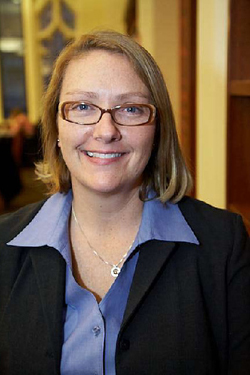Literacy's Great Expectations
Does "the word" empower, as Freire argued, or perpetuate the status quo? TC's Lesley Bartlett went to the philosopher's homeland for answers
What is the relationship between literacy and political and economic development? What does literacy mean to students? Do literacy programs contribute to social change or help to maintain contemporary power relations?
These were just some of the questions addressed by Lesley Bartlett, Associate Professor of Education in International and Transcultural Studies, during her February 17th Book Talk at TC’s Gottesman Libraries, where she explored the themes of her recently-released book, The Word and the World: The Cultural Politics of Literacy in Brazil (Hampton Press, 2009).
The result of 27 months of fieldwork at public schools and non-governmental organizations in Rio de Janeiro and Joao Pessoa , Bartlett
“Conventional discourse assumes that literacy can be divorced from its social context,” Bartlett
When querying students about what literacy means to them, Bartlett found there was an emphasis on relationships and being a moral person—and these types of understandings, Bartlett argued, should be taken into account when conceiving of literacy and its function in the world.
Bartlett also provided the Book Talk audience with an overview of key Freirean concepts, including dialogue as egalitarian engagement between teacher and student and knowledge as a tool for construction, as opposed to something that is finite.
In comparing the public school students to the students at the NGOs, Bartlett
“It is not, Freirean pedagogy that engenders the engagement,” Bartlett
Published Monday, May. 10, 2010

